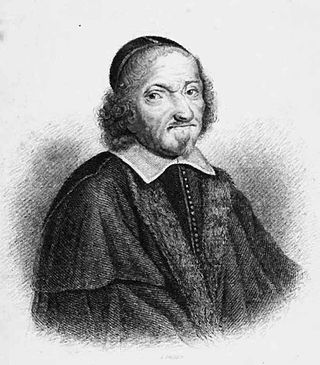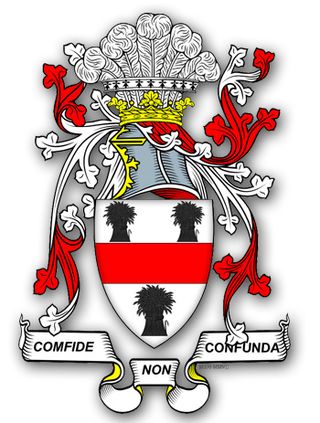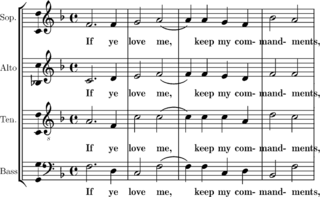Related Research Articles
William Tyndale was an English biblical scholar and linguist who became a leading figure in the Protestant Reformation in the years leading up to his execution. He is well known as a translator of most of the Bible into English, and was influenced by the works of prominent Protestant Reformers such as Martin Luther.

Myles Coverdale, first name also spelt Miles, was an English ecclesiastical reformer chiefly known as a Bible translator, preacher and, briefly, Bishop of Exeter (1551–1553). In 1535, Coverdale produced the first complete printed translation of the Bible into English. His theological development is a paradigm of the progress of the English Reformation from 1530 to 1552. By the time of his death, he had transitioned into an early Puritan, affiliated to Calvin, yet still advocating the teachings of Augustine.

John Rogers was an English clergyman, Bible translator and commentator. He guided the development of the Matthew Bible in vernacular English during the reign of Henry VIII and was the first English Protestant executed as a heretic under Mary I, who was determined to restore Roman Catholicism.
Sir Jacobus van Meteren (1519–1555) was the financier and printer of early English versions of the Bible. He was involved in the printing of an edition of Tyndale's New Testament in 1535. The Coverdale Bible of 1535 may also have been his work. He may also have printed the Matthew Bible of 1537, the combined work of William Tyndale, Myles Coverdale and John Rogers. It is unknown if he was the only financier, printer or publisher of these works, or one of several.

The Matthew Bible, also known as Matthew's Version, was first published in 1537 by John Rogers, under the pseudonym "Thomas Matthew". It combined the New Testament of William Tyndale, and as much of the Old Testament as he had been able to translate before being captured and put to death. Myles Coverdale translated chiefly from German and Latin sources and completed the Old Testament and Biblical apocrypha, except for the Prayer of Manasseh, which was Rogers', into the Coverdale Bible. It is thus a vital link in the main sequence of English Bible translations.

The Geneva Bible is one of the most historically significant translations of the Bible into English, preceding the King James Version by 51 years. It was the primary Bible of 16th-century English Protestantism and was used by William Shakespeare, Oliver Cromwell, John Knox, John Donne and others. It was one of the Bibles taken to America on the Mayflower, and its frontispiece inspired Benjamin Franklin's design for the first Great Seal of the United States.

The Great Bible of 1539 was the first authorised edition of the Bible in English, authorised by King Henry VIII of England to be read aloud in the church services of the Church of England. The Great Bible was prepared by Myles Coverdale, working under commission of Thomas Cromwell, Secretary to Henry VIII and Vicar General. In 1538, Cromwell directed the clergy to provide "one book of the Bible of the largest volume in English, and the same set up in some convenient place within the said church that ye have care of, whereas your parishioners may most commodiously resort to the same and read it."

Tyndall is the name of an English family taken from the land they held as tenants in chief of the Kings of England and Scotland in the 11th, 12th and 13th centuries: Tynedale, or the valley of the Tyne, in Northumberland. With origins in the ancient Anglo Saxon nobility of Northumbria, the Royal Scottish House of Dunkeld and the Anglo-Norman nobility, they have contributed courtiers, judges, writers, historians, sailors, airmen, scientists and philosophers to the history of England, Ireland and the new world. Two members of the family were offered, and declined, the throne of Bohemia in the 15th century and one of their number, William Tyndale, was the first modern translator of the Bible into English and one of the most important figures in the evolution of the modern language. The family is spread today throughout the British Isles and the English speaking world.
Early Modern English Bible translations are those translations of the Bible which were made between about 1500 and 1800, the period of Early Modern English. This was the first major period of Bible translation into the English language including the King James Version and Douai Bibles. The Reformation and Counter-Reformation led to the need for Bibles in the vernacular with competing groups each producing their own versions.

Rowland Taylor was an English Protestant martyr during the Marian Persecutions.

Hockwold cum Wilton is 10 miles west of Thetford, Norfolk, England and is in the borough of King's Lynn and West Norfolk. It is located near several USAF airbases, notably RAF Lakenheath and RAF Mildenhall. It is situated on the boundary between the geographical areas of the Breckland – a region of sandy heathland now largely forested – and the flat, low-lying Fens, with some characteristics of both.

The Tyndale Bible (TYN) generally refers to the body of biblical translations by William Tyndale into Early Modern English, made c. 1522–1535. Tyndale's biblical text is credited with being the first Anglophone Biblical translation to work directly from Hebrew and Greek texts, although it relied heavily upon the Latin Vulgate and Luther's German New Testament. Furthermore, it was the first English biblical translation that was mass-produced as a result of new advances in the art of printing.
Events from the 1530s in England.
Events from the 1520s in England.
George Joye was a 16th-century Bible translator who produced the first printed translation of several books of the Old Testament into English (1530–1534), as well as the first English Primer (1529).
David John Daniell was an English literary scholar who became Professor of English at University College London. He was founder of the Tyndale Society, a specialist in William Tyndale and his translations of the Bible, and author of a number of studies of the plays of Shakespeare.
Anne Boleyn is a play on the life of Anne Boleyn by the English author Howard Brenton, which premiered at Shakespeare's Globe in 2010. Anne Boleyn is portrayed as a significant force in the political and religious in-fighting at court and a furtherer of the cause of Protestantism in her enthusiasm for the Tyndale Bible.
God's Outlaw is a 1986 British historical film directed by Tony Tew and starring Roger Rees, Bernard Archard and Keith Barron. It depicts the historical figure of William Tyndale and his struggles with the authorities in the time of Henry VIII for translating the Bible into English.
William Maldon was a 16th-century English Protestant activist who taught himself to read in order to directly access the Bible in English. An autobiographical account on Maldon's self-taught literacy and his father's subsequent violent reaction, "A young man inhumanly persecuted by his Father for reading ye scripture, in K. Henries time", appeared in the Actes and Monuments by John Foxe.

"If ye love me" is a four-part motet or anthem by the English composer Thomas Tallis, a setting of a passage from the Gospel of John. First published in 1565 during the reign of Elizabeth I, it is an example of Tudor music and is part of the repertoire of Anglican church music. An early English-language motet, it is frequently performed today, and has been sung at special occasions including a papal visit and a royal wedding.
References
- ↑ Wriothesley, Charles (1865). Hamilton, William Douglas (ed.). A Chronicle of England During the Reigns of the Tudors, from A.D. 1485 to 1559. Camden Society. pp. 72–3.
- ↑ "Humphrey Monmouth". 2016.
- ↑ "The Aldermen of the City of London".
- ↑ p.59-60, Christopher Haigh, English Reformations: Religion, Politics and Society, Oxford: Clarendon Press
- ↑ Hope, Andrew. “Thomas More and Humphrey Monmouth: Conscience and Coercion in Reformation England.” In Theorizing Legal Personhood in Late Medieval England, edited by Andreea Boboc, 244–69. Leiden: Brill, 2015.